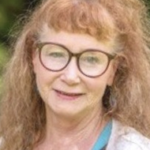Between 1 January and 30 September 2025, Israeli authorities carried out 1288 demolitions of Palestinian-owned structures in the West Bank, including East Jerusalem.
These demolitions displaced more than 1400 people and affected more than 38,000 others, according to the Norwegian Refugee Council.
Each demolished home represents not just a building gone, but a family uprooted and, in many instances, attacked or even killed.
“There are currently about 700,000 Israeli settlers living in 250 illegal settlements on Palestinian land in the West Bank and East Jerusalem combined. About half a million of these are in the West Bank,” according to Al Jazeera on 24 October 2025
In the hills south of Hebron, a Palestinian farmer named Aisha stands beside the rubble of what used to be her home. Israeli bulldozers arrived and within hours, her stone house, built by her grandfather, was gone. She and her children watched in silence as soldiers marked out the land for “security purposes”, knowing that within days, settlers would likely move in.
Aisha’s olive trees, some more than 80 years old, now sit behind a new fence she cannot cross. Her family’s water tank has been destroyed twice. The road to the nearest clinic is blocked by a checkpoint. She is not allowed to rebuild; she is not even allowed to enter the area without a permit. What was once her home is now declared part of an Israeli “administrative zone”.
Aisha’s story is not unique.
Across the West Bank, hundreds of Palestinian families are living this reality, being displaced, assaulted, fenced in and slowly erased from their land. Each demolition, each eviction, is a premeditated step towards annexation.
The West Bank is not just another disputed territory. It’s the heart of the Palestinian story, villages, olive groves and holy sites that carry centuries of history and identity. To annex it would be to erase that story and replace it with one of permanent occupation.
Peace never grows from control. It can only begin with recognition, of history, of rights and of equal humanity.
Annexation isn’t freedom, it’s control
Annexing the West Bank would mean taking land that the world recognises as Palestinian and making it part of Israel. That’s not just a line on a map, it’s about a people’s right to live freely on their own land!
Even for those Palestinians who no longer believe in a two-state solution, annexation would destroy any chance of self-determination. It would deny them the future where they could govern themselves, make their own laws and control their resources. Instead, they would live under someone else’s rule, with no voice and no vote.
Annexation would cement what already exists – two groups of people living under completely different sets of rules. Israeli settlers would keep their full rights, free movement, legal protection and access to land and water.
Palestinians would remain under military rule, facing more checkpoints, travel restrictions and daily uncertainty.
This is not co-existence. This is deliberate inequality.
Israel already controls most of the land and resources in the West Bank. Annexation would take even more.
Palestinian villages could face more demolitions, farmland would be seized and families forced to leave – again.
Water, already scarce, would become even more tightly controlled. Annexation isn’t just about losing land, it’s about losing the ability to live on it.
The broader impact
Gaza is already trapped under blockade and would become even more cut off from the rest of Palestine. The dream of a united homeland would vanish. Palestinians in Gaza, the West Bank and East Jerusalem would be fragmented, physically and politically, living in disconnected communities with no national identity or protection.
Human rights organisations, including Amnesty International, Human Rights Watch and the Israeli group B’Tselem, have described what’s happening as apartheid. Annexation would make that permanent. It would leave Palestinians living under occupation forever, “people of nowhere”, ruled by a country that denies them equality.
This isn’t about politics, it’s about power.
Annexation would deepen despair, anger and hopelessness and it would make violence more likely. It would also widen the division between those Israelis and Palestinians who want justice and coexistence – and there are many.
For Palestinians, annexation would mean their future is decided again — for them — not with them.
This is about all of Palestine
Annexing the West Bank is not just about one area. It affects the future of all Palestinians in Gaza, Jerusalem and across those regions that displaced Palestinians have moved to. It’s about whether they will ever live with dignity, equality and belonging in their homeland.
This is not the time for silence. Every person who believes in justice, who values human life, who cares about peace, must raise their voice.
Annexation doesn’t just end the hope of two states, it risks ending the hope of freedom itself.
Further reading:
Israel’s parliament advances bill to annex occupied West Bank;
Can Israel annex the West Bank if the US says no?
West Bank community left reeling after Palestinian woman clubbed by masked Israeli settler
The views expressed in this article may or may not reflect those of Pearls and Irritations.

Meg Schwarz
Meg Schwarz holds a Postgraduate Diploma in Counselling and Psychotherapy and brings over 35 years of experience championing social justice, advocacy and consumer engagement. Based in South Australia, Meg has dedicated her career to working alongside diverse communities, including refugees, people with disabilities and individuals with complex trauma backgrounds.With a strong passion for equality and human rights, Meg specialises in fostering meaningful communication, empowering voices through advocacy and creating inclusive spaces for dialogue. Her skills in stakeholder engagement, strategic communication and community development have earned her recognition as a trusted and compassionate leader in her field.
